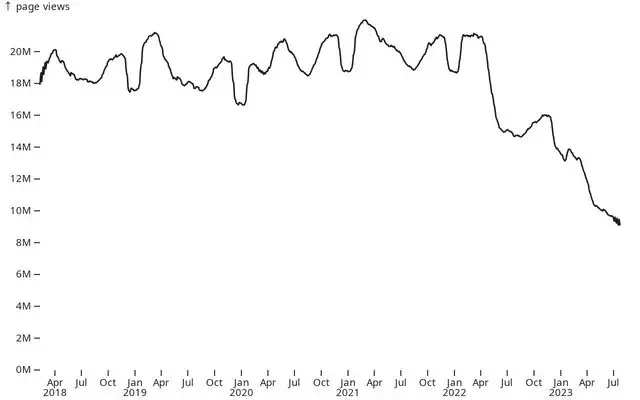- cross-posted to:
- tech@kbin.social
- hackernews@derp.foo
- cross-posted to:
- tech@kbin.social
- hackernews@derp.foo
Over the past one and a half years, Stack Overflow has lost around 50% of its traffic. This decline is similarly reflected in site usage, with approximately a 50% decrease in the number of questions and answers, as well as the number of votes these posts receive.
The charts below show the usage represented by a moving average of 49 days.
What happened?



Better than knowing there’s some possibility that the answer was generated purely because the sequence of characters had the highest probability of convincing the reader that it seems correct based on the sequence of characters it was given as input (+/- a decent amount of RNG)
Still debatable, IMO. Human belief is stubborn and self-justifying whereas an RNG can be rerolled as many times as needed.
Yeah but if you keep rerolling the RNG, how do you know when a right answer gets randomly generated?
Also, my point above was that if a human believed the solution was true, it probably was true at some point. With generative language models, there’s no guarantee that there’s any logic to what it tells you.
You know when the code compiles and does what you want it to do. What’s the point in asking for code if you’re not going to run it? You’d be doing that with anything you got off of Stack Overflow too, presumably.